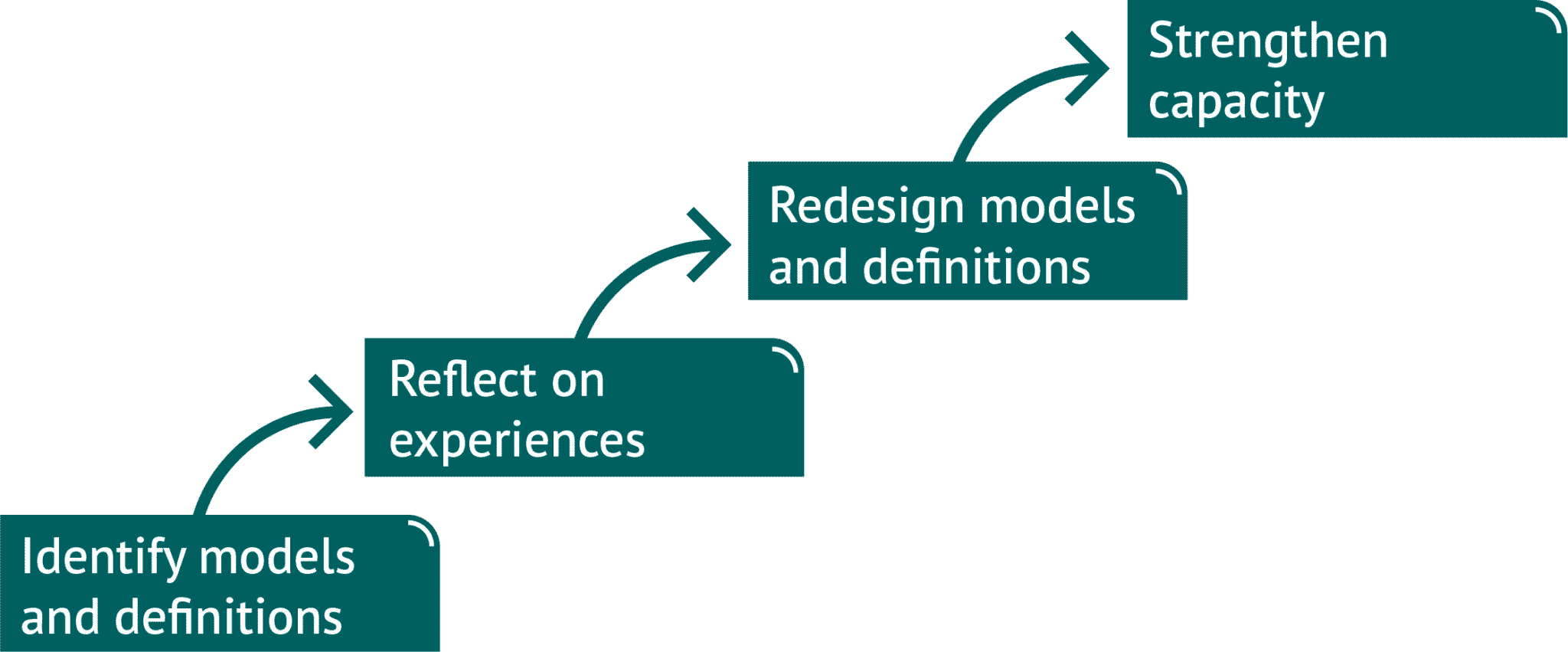Learning from Consortia
This programme aims to improve international development practice by supporting and learning with UK Aid Connect consortia.
Diverse partnerships have the potential to deliver more effective development and humanitarian programmes, while achieving the Sustainable Development Goals (SDGs).
The Learning from Consortia programme brings together 13 consortia formed by diverse organisations to facilitate collective learning and support consortia to deliver their outcomes. The programme aims to learn from their experiences and insights to draw out good practice in consortium working, as well as helping donors understand how they can best support consortia.
The programme is led by Bond and The Partnering Initiative, along with an academic advisory board. The consortia are all supported by the UK’s Aid Connect funding stream. The programme is funded by the UK’s Foreign, Commonwealth and Development Office (FCDO).
Due to the FCDO’s recently announced cuts, the programme will be closing early. Read our statement here.
Our research approach
The programme supports the consortia to learn, adapt and work more effectively to achieve their development outcomes. This is focusing on five themes: consortium working, gender, innovation, community engagement and value for money.
Research is conducted through an iterative and participatory process. We draw on UK Aid Connect consortia experiences to rethink models and definitions of consortia working, and to support future policy and practice. The programme team includes thematic and academic advisers who are working with the consortia throughout, helping to enhance their work while guiding their research and conducting in-depth analysis.

Resources
We’ve produced a number of resources to support international development consortia to be more effective. Use the links below to access individual resources.
Guide
- A guide to emerging thinking and effective practices in consortium working. It includes some of the key challenges a consortium faces as a result of its structure and ambitions, methods for maximising the consortium’s value, collaborative leadership and governance, and how to close or transition a consortium.
Reports
- A review of the literature on working in consortia to deliver humanitarian and development programmes. It explores the current knowledge about consortia working, and the priorities for future research.
- A report exploring whether the consortia found the Learning from Consortia programme’s health checks useful, and in what ways it helped them.
- Case studies showing how the ACCESS and Inclusion Works consortia adapted and innovated to unexpected and challenging circumstances.
- A report focusing on community engagement in UK Aid Connect consortia. It explores the varied approaches of community engagement in relation to consortia, and the diverse challenges faced by UK Aid Connect consortia when working with diverse communities.
Practical tools
- An infographic presenting the ways UK Aid Connect consortia have adapted to Covid-19, and the challenges, benefits and the potential factors enabling adaptation.
Articles
- Two articles identifying five ways development consortia have adapted to Covid-19 and what enables them to adapt.
- An article sharing five ideas for effective gender approaches within consortia.
Event
- The ‘What can we learn about working in consortia?‘ event explored how to co-create a consortium and how consortia can adapt to change and uncertainty across different themes. Read a summary of the event here.
Review
- A review of the Learning from Consortia programme, sharing its story, achievements and reflections.
UK Aid Connect consortia
The consortia and their focus are:
Ongoing
- Aswat Horra (Free Voices) – Building civil society effectiveness
- Civil Society Collective – Civil society effectiveness
- Coalition for Religious Equality and Inclusive Development (CREID) – Freedom of religion or belief
- The Development Alternative – Civil society effectiveness
- Freedom of Religion or Belief Leadership Network (FoRBLN) – Freedom of religion or belief
- Inclusion Works – Disability inclusion
- Innovation to Inclusion (i2i) – Disability inclusion
- The Partnership to End Child Exploitation (PACE)* – Tackling child labour and modern slavery
- Protecting Rights, Openness and Transparency Enhancing Civic Transformation (PROTECT) – Building civil society effectiveness
Closing
- Advancing SRHR through the Promotion of Innovation and Resilience (ASPIRE)** – Promoting Sexual and Reproductive Health and Rights (SRHR)
- Approaches in Complex and Challenging Environments for Sustainable Sexual and Reproductive Health and Rights (ACCESS) – Promoting Sexual and Reproductive Health and Rights (SRHR)
- Evidence and Collaboration for Inclusive Development (ECID) – Civil society effectiveness
- Smart Peace – Working towards global security and effectiveness
Download the map to see where the consortia have been working
*The PACE consortium is registered with the FCDO as ‘Effective approaches to ending the worst forms of child labour in fragile contexts (EAPAC)’
**The ASPIRE consortium is registered with the FCDO as ‘Building resiliency and gender equality of the most marginalised communities through multi-sector approaches to delivering quality sexual and reproductive health and rights’
The Learning from Consortia programme is funded by the UK’s Foreign, Commonwealth and Development Office (FCDO). Due to the FCDO’s recently announced cuts, the programme will be closing early. Read our statement here.

